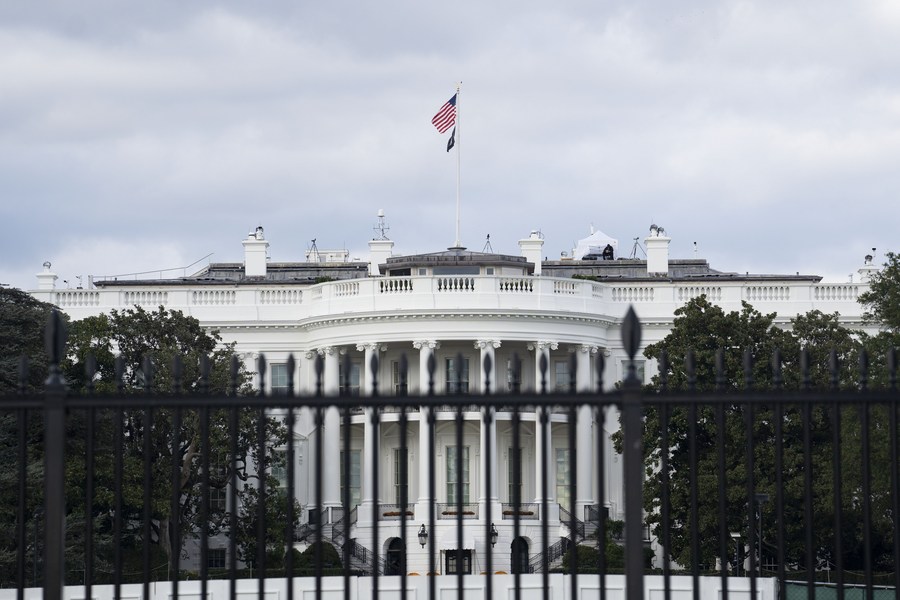US emerging as primary source of global risks


The world, in essence, seems to be on the precipice of a year marked by grave concerns and problems, due to the interconnected nature of some top risks with the actions and policies of the United States.
It is increasingly fair to assert that the US, in its mockery of international norms and values, has emerged as the primary source of global risks in 2024.
At present, the world is confronting numerous crises, each carrying a genuine risk of spilling over and escalating into an even more formidable challenge. Notably, there is a looming possibility of a broader conflict erupting in the Middle East, which would have an impact on global commerce and potentially give rise to supply chain-driven inflation.
The global landscape is marked by an interlocking series of crises, yet the collaborative and cooperative efforts to resolve them are falling apart. Consequently, any expectations of wise and farsighted political solutions to the myriad challenges confronting the world seem elusive. Instead, the prevailing scenario depicts a world besieged by escalating wars and conflicts, with the US adding more fuel to the fire.
Under President Joe Biden, the US is also persisting in adopting the same approach as his predecessors, therefore contributing to the global erosion and mockery of international norms and values. The Biden administration, rather than utilizing its resources and wisdom to address burning issues domestically, is contributing to the exacerbation of existing problems.
Recent geopolitical issues, such as the Russia-Ukraine conflict and the Israel-Palestine conflict, have led to complex and volatile regional security situations. The US-led role of fueling tensions with intensifying geopolitical games not only has a profound impact on the world pattern, but also disrupts global industrial chains, bringing about a serious impact on the world economy.
The notion of so-called "rules-based" international order that is invoked by the Biden administration, ostensibly promoting order, was written by Washington to allow the White House, the CIA and the Pentagon a free hand in their overt and covert actions.
The US government has provided unequivocal support and military aid to Israel's military offensive in Gaza, which is against the global order and system of rules. The consequences of Israel's actions over the past few months, backed by the US, cast doubt on the sincerity of the rules supposedly underpinning the international order.
The attempted justification implies that these "rules" potentially allow states to inflict collective punishment, use starvation as a weapon, and indiscriminately bomb civilians and essential infrastructure, all with total impunity. Such outrageous behavior poses a direct challenge to international peace and stability.
Furthermore, the actions undertaken challenge established norms, such as waging or preparing for wars of aggression and leveraging technology and supply chains for coercion and repression. This deviation from principles that uphold peace and stability presents a grim perspective on the world order. It appears to be a system wherein participating nations inadvertently endorse and perpetuate actions that contravene international law.
Amid these dynamics, there is a growing concern about the potential escalation of conflicts and their spread to other regions. The risks of the US becoming directly involved in a multifront war are on the rise, as exhibited in the Red Sea crisis.
Elsewhere, Washington's pursuit of the so-called "Indo-Pacific "strategy and the encouragement of allies to provoke them against China on South China Sea-related issues contribute to the escalation of tensions.
The US government's emphasis on competing for influence with other major powers in Africa, Latin America and Asia is increasing tensions. US interventionism aims at global dominance, breeding instability and violence across the world. The US must shed the Cold War mentality and cease interference in other nations' internal affairs.
In the current global landscape, the core objective for countries worldwide engaging with the US should be to prevent the nation from bringing additional risks to the world.
The US government should embrace a more contemporary approach, fostering global cooperation instead of perpetuating outdated ideologies. Abandoning the Cold War mentality and respecting the sovereignty of other nations will contribute to a more harmonious and collaborative international system.
The author is executive director of the Pakistan Research Center for a Community with Shared Future in Islamabad.






























